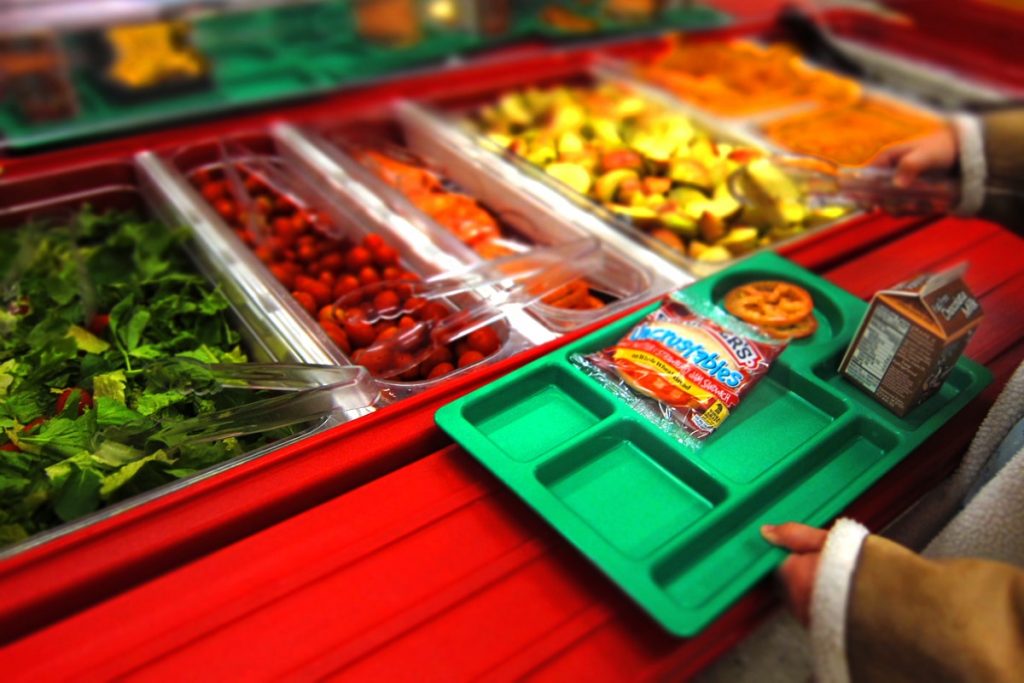What Domino’s Pizza in the Cafeteria Says About the State of School Food Reform
Cecily Upton, FoodCorps’ Co-Founder, Senior Vice President, and Chief Strategist, is quoted in this article on the challenges of running school food like a business.
Cecily Upton, FoodCorps’ Co-Founder, Senior Vice President, and Chief Strategist, is quoted in this article on the challenges of running school food like a business.

Cecily Upton, FoodCorps’ Co-Founder, Senior Vice President, and Chief Strategist, is quoted in this article on the challenges of running school food like a business.
By Lisa Held, Civil Eats
As an advocate, writer, and school food commentator (and Civil Eats contributor), Bettina Elias Siegel has spent the last eight years working on improving the quality of food served in public schools across the country.
But her activism started with the desire to change the food her children were being served at schools in the Houston Independent School District (HISD). So when she found out in late 2017 that HISD had hired Betti Wiggins, the visionary who had transformed Detroit’s school food program from one dependent on deep-fried, processed foods to one filled with fresh produce from local farms, she thought her work in the district was done.
“I felt like, ‘We’re in good hands now, I don’t have to pay attention,’” Siegel said.
Which is why she was shocked to hear that, in July, Wiggins signed an $8 million contract with Domino’s to sell its Smart Slice pizza in Houston’s middle and high schools. (The contract is set for one year and renewable for four.)
After Siegel wrote about the contract on her blog, The Lunch Tray, in early August, the Houston Chronicle picked up the piece (with a few small updates), sparking controversy both within the district and in larger circles of concerned parents and reformers.
“There are certain foods I don’t think we should be serving in schools. I don’t serve hot dogs and corn dogs; I think that’s carnival food,” Wiggins had said in a Civil Eats interview in 2015. But in 2018, she told Siegel she had to have a source of pizza on the HISD a la carte line because kids demand it, and that she is expected to run a business that doesn’t end up needing money from the district at the end of the year.
“This is a delicate balance act that we play,” she told Siegel. “I’ve got to find a way to get incremental income. That’s a shame to say.”
The big question hovering around the discussion was clear: If an esteemed advocate like Wiggins feels the need to feed students Domino’s in order to make her budget work, what does that say about the state of school food reform in 2018?

FoodCorps in the News: 2024

FoodCorps’ Statement on the 2024 Election

FoodCorps Welcomes Rachel Willis as Interim President